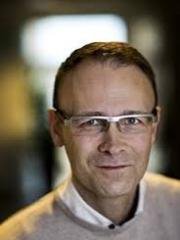KI granted SEK500 million from Swedish Research Council for medical research

The Swedish Research Council has granted 118 researchers at Karolinska Institutet a combined 500 million kronor for the years 2019-2024. In total, the council is allocating almost 1.1 billion kronor to 254 people for research within medicine and health.

With some 46 percent of the total funding, KI is the largest of 10 institutional recipients in this financing round. The money will go toward research within areas such as cancer, MS, autoimmune diseases, pregnancy complications and obesity.
Martin Bergö, professor at the Department of Biosciences and Nutrition, is one of the researchers receiving the most financing with a grant of 9 million kronor.
"This is wonderful news! We're especially thrilled to be receiving a 5-year grant, which gives more long-term stability and is key for a research group with many full-time employees," says Martin Bergö. "The money will go toward our research on lung cancer and malignant melanoma with emphasis on how oxidative stress, antioxidants and metabolic factors interact when cancer cells grow and metastasize."
Here are six more researchers who will receive 9 million kronor each over a period of five years.
Yihai Cao, professor at the Department of Microbiology, Tumor and Cell Biology, who will study how vascular-related tumors spread and respond to pharmaceutical drugs.
Goncalo Castelo-Branco, researcher at the Deparment of Medical Biochemistry and Biophysics, who will look into new roles for oligodenrocytes, a type of nervous system cells, in multiple sclerosis.
Rikard Holmdahl, professor at the Department of Medical Biochemistry and Biophysics, who is expanding our perspective on autoimmune diseases with the help of positional cloning of the Ncf1 gene, a gene that codes proteins important for the immune system.
Qiang Pan-Hammarström, professor at the Department of Biosciences and Nutrition, who researches immunoglobulin genes and antibodies and their relevance for immunodeficiency and lymphoma.
Gunnar Schulte, professor at the Department of Physiology and Pharmacology, who studies how receptor pharmacology can be used as tools for pharmaceutical development.
Per Svenningsson, professor at the Department of Clinical Neuroscience, who will study receptor-mediating mechanisms in Parkinson's disease and depression.
